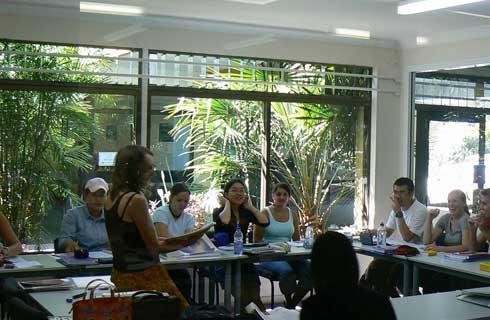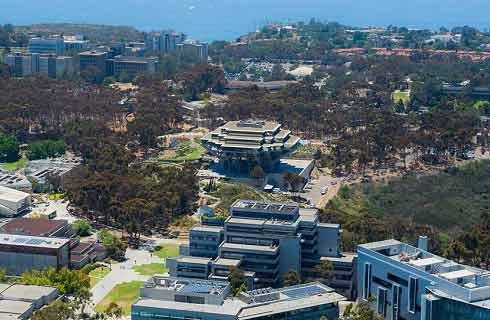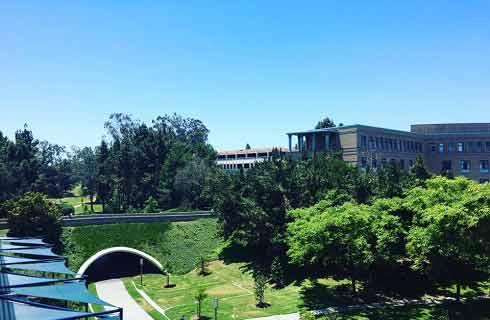理学学士(高级)(荣誉学位)-免疫学
Bachelor of Science (Advanced) in Immunology (Honours)

学历文凭
Bachelor Degree with Honours

专业院系

开学时间

课程时长

课程学费

国际学生入学条件
IDP—雅思考试联合主办方

雅思考试总分
- 雅思总分:
- 托福网考总分:
- 托福笔试总分:
- 其他语言考试:
CRICOS代码: 036745F
申请截止日期: 请与IDP联系 以获取详细信息。
课程简介
Honours is a widely recognised and highly regarded additional year of undergraduate study available to you after you complete your undergraduate course. It's a unique opportunity for you to explore your research potential and put the theory from your undergraduate studies into practice. An honours qualification is not only well regarded in academia, but also in industry where further, concentrated studies in a specialised area is highly sought after. Extend your knowledge of your undergraduate degree with a stand-alone Honours year in your subject area expertise. This course is available to students who have already completed their studies in this study area. Depending on your interests and the availability of honours projects, you might wish to undertake honours in anatomy, biochemistry, biology (genetics), cell pathology, histology and embryology, immunology, infectious diseases, microbiology, pharmacology or physiology. This course is also offered at the Westmead precinct. The Faculty of Science has an outstanding reputation for the quality of its postgraduate research programs across a wide range of science disciplines. With significant levels of funding from various research councils and bodies, and the provision of major research facilities, the Faculty is committed to providing leading education and research training to its students. There are a range of research programs available, depending on which stage you are at in your academic career. Whether at the doctoral or masters level, you undertake self-directed, supervised research in your specialised area of science, and produce a thesis considered to be a substantially original contribution to the subject concerned. The Honours year in Science provides a research training pathway to our higher research degrees, the Doctor of Philosophy (PhD) and Master of Science (MSc). The postgraduate research programs offered by the Faculty attract a large number of domestic and international students each year.Immunology examines the defence mechanisms that protect humans against infections and cancers, and draws together studies in immunology, microbiology, biology, biochemistry, pathology and physiology. Studies in immunology are leading to advances in clinical medicine, including understanding allergies, transplant rejection, auto immune diseases, such as rheumatoid arthritis and insulin-dependent diabetes, and the development of new vaccines. In addition, immunological techniques are widely used in disciplines such as biochemistry, endocrinology, microbiology, molecular biology and genetics.
相关申请
 预科
预科 奖学金
奖学金 实习机会
实习机会 在校学习
在校学习 跨境学习
跨境学习 校园授课-线上开始
校园授课-线上开始 在线/远程学习
在线/远程学习
开学时间&学费
学费信息仅供参考,请与IDP联系以获取详细信息
| 开学时间 | 时长 | 学费 | 地点 |
|---|
学校排名

世界排名60
数据源:
泰晤士高等教育世界大学排名
关于悉尼大学

位于澳大利亚首都的悉尼大学是举世闻名的机构,一直名列世界前20名大学之列(2024年QS世界大学排名)。在2022年QS毕业生就业能力排名中,悉尼大学的毕业生也位居澳大利亚第一和世界第四。来自世界各地的学生进行本科和研究生水平的学习。学生可以在澳大利亚最广泛的课程和学科中选择。该大学提供超过400个学习领域供学生选择,大学5门学科位居世界前十名,另外还有28门学科位居世界前50名(2022年QS世界大学学科排名)。通过实习和工作经验以及通过大学海外项目进行国际交换(包含在学位内的可选项目),从而增加了学生的就业机会。学生将在支持和启发的环境中学习和发展,大学会提供给学生大量的服务,这包括学术和专业支持,残疾服务,保密咨询服务,健康服务还有财务援助办公室提供服务。学生还可以参加由悉尼大学学生会(USU)运营的250多个校园俱乐部和社团,从体育运动到文化团体应有尽有。校园内有许多可供学生使用的设施,其中包括带奥林匹克规格温水游泳池的健身室和攀岩中心。此外,还有美术馆、博物馆、咖啡馆、餐厅和酒吧供学生休闲。学生还可以使用南半球最大的学术图书馆。悉尼是世界上最优秀的城市,根据《经济学人》2021年安全城市指数显示,悉尼被评为第四大最安全的居住地,当地的学生体验得以丰富和提升。
本校相关课程

Graduate Certificate in Clinical Dentistry - Advanced Restorative
学历文凭
Graduate Certificate
开学日期
课程费用总额


Graduate Diploma in Clinical Dentistry - Advanced Restorative
学历文凭
Graduate Diploma
开学日期
课程费用总额


城市和区域规划研究生文凭
学历文凭
Graduate Diploma
开学日期
课程费用总额


教育硕士
学历文凭
Masters Degree (Coursework)
开学日期
课程费用总额


专业工程学硕士(电力)
学历文凭
Masters Degree (Coursework)
开学日期
课程费用总额


专业工程学硕士(电信)
学历文凭
Masters Degree (Coursework)
开学日期
课程费用总额

其他相关课程

卫生专业教育硕士-研究重点
 西澳大学
西澳大学学历文凭
Masters Degree (Coursework)
开学日期
课程费用总额


卫生研究研究生文凭
 堪培拉大学
堪培拉大学泰晤士高等教育世界大学排名:470
学历文凭
Graduate Diploma
开学日期
课程费用总额


营养科学研究生文凭
 堪培拉大学
堪培拉大学泰晤士高等教育世界大学排名:470
学历文凭
Graduate Diploma
开学日期
课程费用总额


公共卫生学(营养学)(荣誉学位)
 伍伦贡大学
伍伦贡大学泰晤士高等教育世界大学排名:247
学历文凭
Bachelor Degree with Honours
开学日期
课程费用总额


医学和健康科学学士学位(荣誉学位)
 伍伦贡大学
伍伦贡大学泰晤士高等教育世界大学排名:247
学历文凭
Bachelor Degree with Honours
开学日期
课程费用总额


健康科学学士(荣誉学位)
 迪肯大学
迪肯大学泰晤士高等教育世界大学排名:206
学历文凭
Bachelor Degree with Honours
开学日期
课程费用总额










